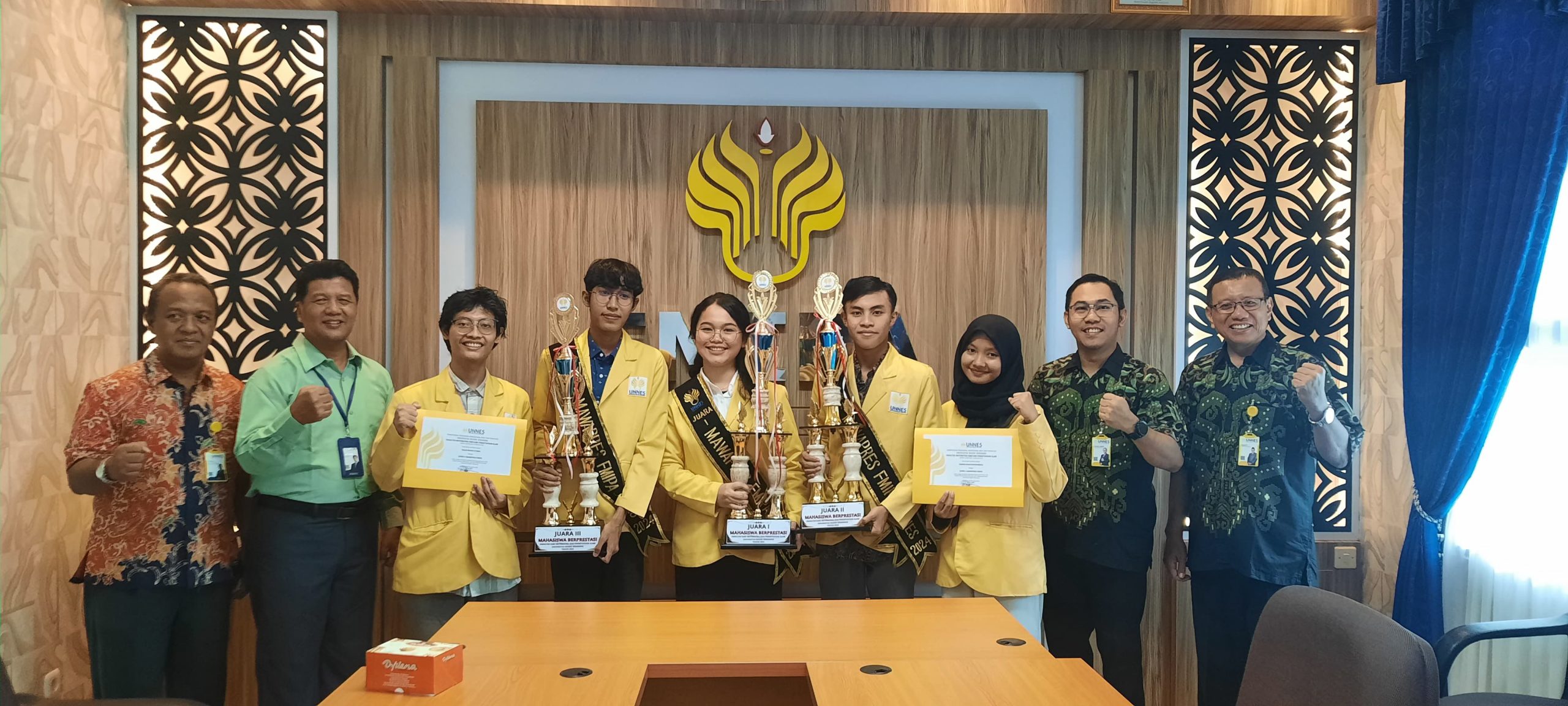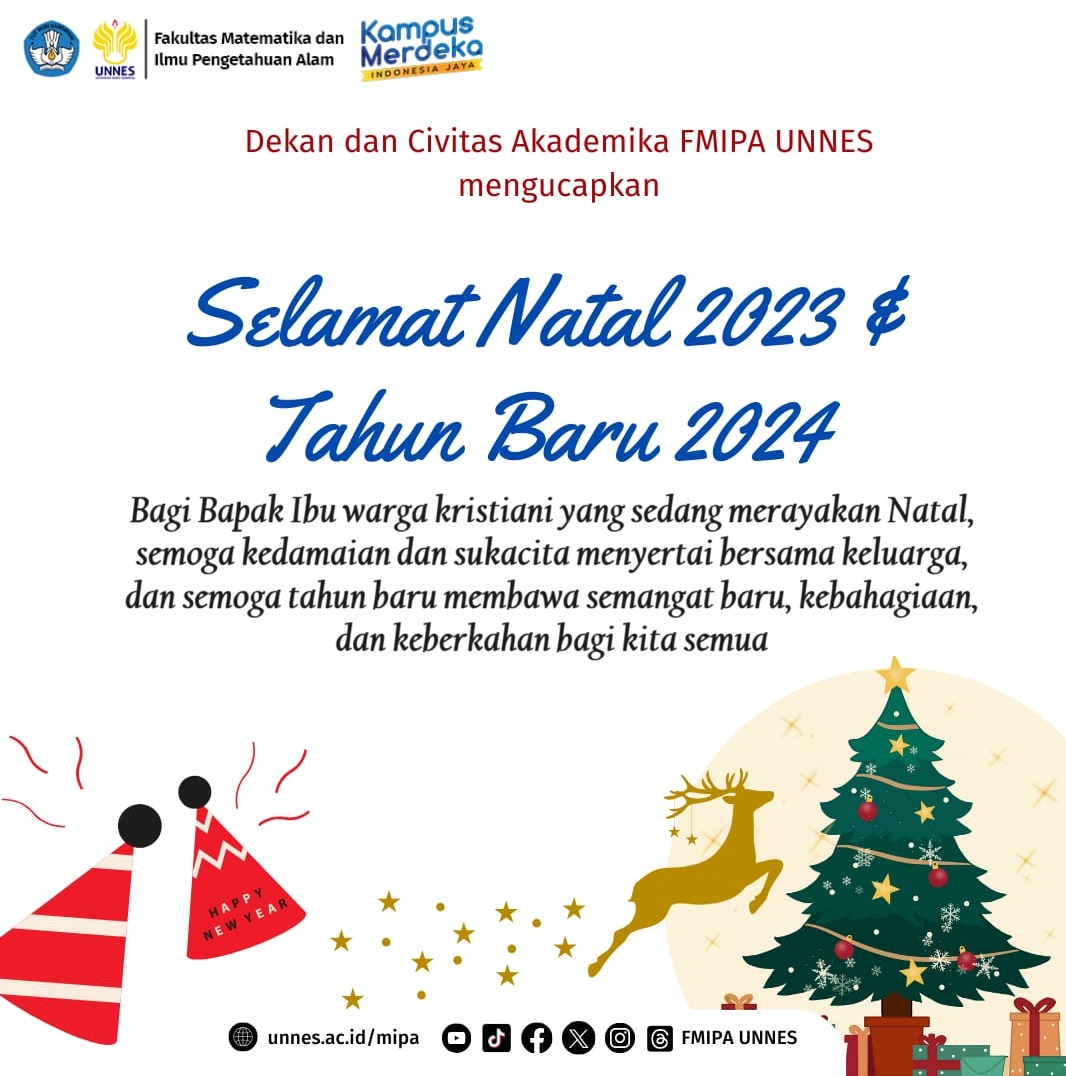Pusat Kajian Obat dan Non-Obat Berbahan Alam Fakultas Matematika dan Ilmu Pengetahuan Alam UNNES kembali menyelenggarakan Webinar Series dengan tema “Potensi Kekayaan Antioksidan Alami Indonesia” pada hari Sabtu 19 Juni 2021. Webinar seri 2 ini mengangkat topik tentang “Peran Antioksidan pada Pangan dan Kesehatan”. Webinar Seri 2 ini dilaksanakan secara daring melalui Zoom Meeting dan disiarkan secara langsung melalui Chanel Youtube FMIPA UNNES.
Dekan FMIPA UNNES Dr. Sugianto, M.Si. membuka secara resmi kegiatan Webinar Seri 2 ini yang merupakan rangkaian kegiatan dari Webinar Series 2021 yang dijadwalkan pada bulan April, Juni dan Agustus 2021. Narasumber yang diundang dalam kesempatan ini adalah Dr. Edy Marwanta, M.Eng. dari BPPT yang membahas tentang “Black Garlic: Riset, Inovasi Produk dan Bisnis”, selain itu juga dihadirkan Guru Besar dari Jurusan Biologi FMIPA UNNES Prof. Dr. Siti Harnina Bintari, M.S. yang mengangkat topik bahasan tentang “Peran Isoflavon pada Produk Pangan Fermentasi dan Kesehatan”. Sesi sharing ilmu ditutup dengan pemaparan tentang “Antioksidan Alami sebagai Antimikroba” oleh Dr. Pramesti Dewi, M.Si. dari Jurusan Biologi FMIPA UNNES. Pemaparan materi dan tanya jawab dipandu oleh Dr. Aditya Marianti, M.Si. sebagai moderator.

Dr. Edy Marwanta, M.Eng memaparkan materinya terkait Black Garlic yang dibuat secara fermentasi enzimatis, memiliki khasiat sebagai antioksidan, anti-diabetes, anti-stroke, anticancer, anti-hypertensive, anti-blood clotting, dan cardioprotective. Dengan memperhatikan suhu dan cara pemanasan selama proses pembuatannya dapat melipatgandakan kadar antioksidan yang terkandung dalam Black Garlic. Sedangkan Prof. Dr. Siti Harnina Bintari, M.S. menjelaskan tentang keberadaan isoflavon dalam pangan fermentasi atau non fermentasi yang sangat dinamis, perlakuan fermentasi memberikan dampak pada kualitas isoflavon sebagai agensia komunikasi sel, sehingga dapat meningkatkan nilai manfaat untuk kesehatan. Kajian tentang peran antioksidan alami sebagai antimikroba dikupas tuntas oleh Dr. Pramesti Dewi, M.Si. Antioksidan yang terkandung di dalam berbagai bahan alam seperti buah ketapang, papaya, dan pinang telah terbukti dapat menghambat pertumbuhan mikroba seperti bakteri dan jamur.



Kegiatan Webinar Seri 2 ini diikuti oleh 210 peserta dari 64 instansi (SMP s.d SMA/MAN, Sekolah Tinggi, Poltekkes, , BPPT, Institut dan Universitas Negeri maupun Swasta) dengan berbagai profesi antara lain sebagai Guru, Dosen, Mahasiswa, Peneliti, Praktisi, maupun masyarakat umum. Peserta yang hadir ini berasal dari 16 Provinsi (Aceh, Jawa Tengah, DKI Jakarta, Kalimantan Tengah, Papua Barat, Jawa Barat, Jawa Timur, Sumatera Selatan, DI Yogyakarta, Lampung, Sumatera Barat, Sulawesi Selatan, Sulawesi Tengah, Bengkulu, Nusa Tenggara Timur, dan Sulawesi Tenggara).
Selamat dan sukses atas terselenggaranya Webinar Seri 2 yang telah meneguhkan FMIPA sebagai kampus Inovatif yang Religius, Unggul, dan Bermakna (Re-Uber) dengan visi menjadi Fakultas Matematika dan Ilmu Pengetahuan Alam berwawasan konservasi yang bereputasi internasional. Semoga ilmu yang diperoleh berkah dan bermanfaat.


Materi lengkap dari kegiatan Webinar Seri 2 ini dapat diunduh dari tautan berikut.
https://bit.ly/Materiwebinarseri2
Secara lengkap dokumentasi Webinar Seri 2 ini dapat disimak di Chanel Youtube FMIPA UNNES berikut.




